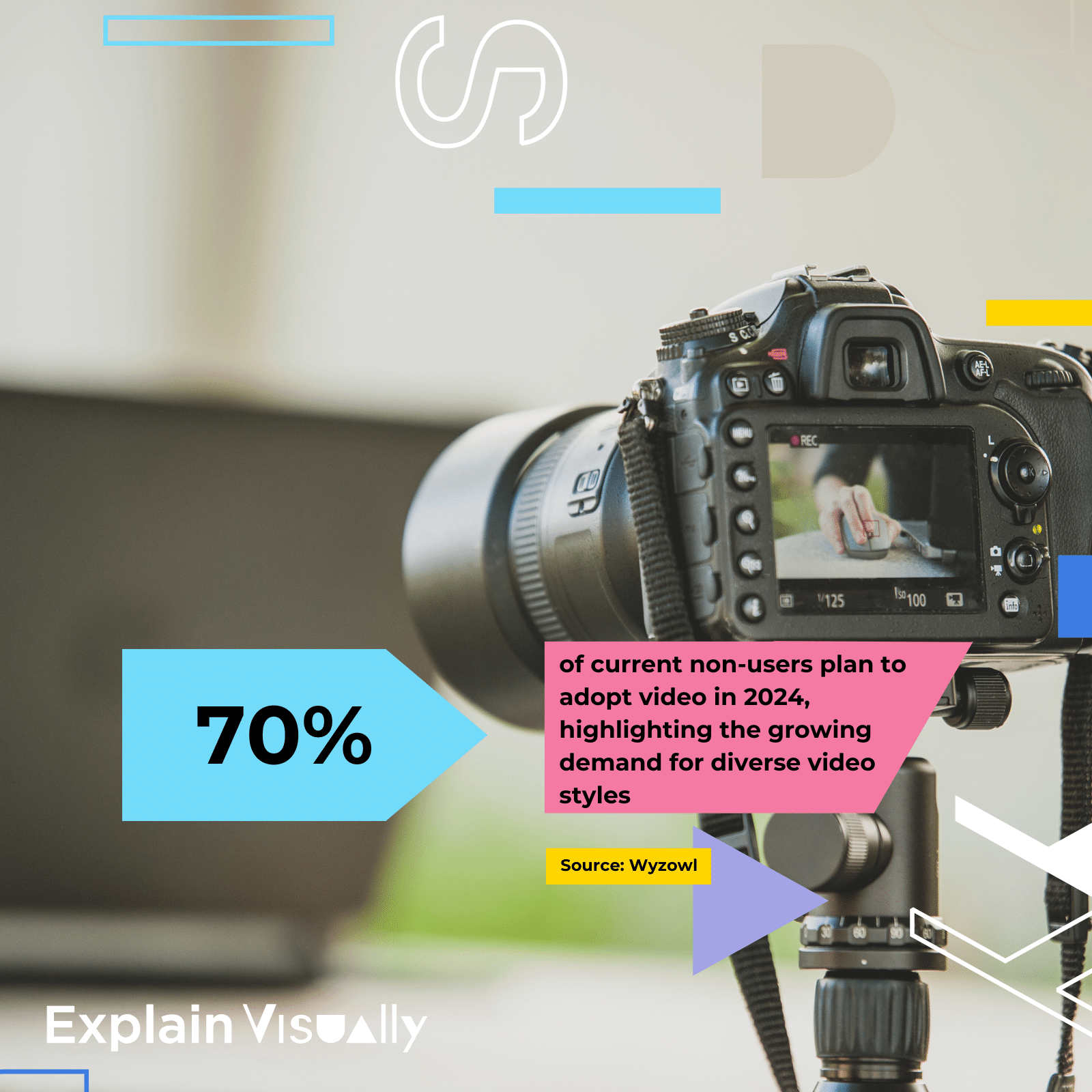Introduction to Educational Video Production
Educational video production is an important aspect of today’s educational system, where education must be interactive. Educational video producers specialize in creating content for a variety of institutions, such as universities, colleges, and online video platforms. They offer a wide range of educational video production services, including scriptwriting, filming, editing, montage, creating animated videos, and VR experiences. This expertise is crucial for educational institutions looking to create educational content that appeals to a variety of learning styles, while simplifying complex topics.
Working with a qualified video production company is crucial for educational institutions looking to create videos that appeal to both current and prospective students. By creating instructional, training, promotional, and explanatory videos, production companies deliver effective content tailored to their target audience. Using a variety of video styles, from short documentaries to marketing videos, educational video production companies ensure that they create high-quality content that meets the needs of today’s educational content landscape.
I. Benefits of Educational Videos
Educational video production plays a key role in improving the learning process by meeting the needs of different learning styles: visual, auditory, and kinesthetic. By creating educational video content that includes instructional and interactive training materials, educational video producers help make learning more accessible and effective. This approach makes the content understandable to a diverse audience, taking into account different learning styles, the needs of people with disabilities, and cultural and professional diversity. Interactivity allows users to adapt the learning experience to their level and preferences, resulting in a more equitable and effective learning environment.
Instructional and animated videos are particularly effective in simplifying complex concepts and making them accessible to a wide range of audiences. These videos break down difficult topics into digestible segments, making educational videos more adaptable to different learners and learning scenarios.
Integrating different video styles allows educational institutions to create engaging and flexible content for different types of audiences. Educational video production services often offer solutions that transform the learning experience and help students achieve better learning outcomes.
II. Understanding the Educational Video Production Process
The educational video production process can be divided into three main phases: pre-production, production, and post-production. In the pre-production phase, the team works with clients to develop a project plan, outline the content, and identify the target audience. This phase involves storyboarding, writing scripts, and managing logistics.
Filming takes place during production, whether it’s live action, animated videos, or short documentaries. This is where the creative vision is realized, and each video project is tailored to specific educational goals.
Post-production involves editing, adding animation, and refining the video for its intended platform. With the rise of interactive elements, high-quality videos can now offer engaging and fun learning experiences. By working closely with an educational video production company, educational institutions can ensure a smooth project from start to finish.
III. Factors that Impact a Video Production Schedule
Many elements impact the production schedule of educational videos. Key factors include video style, video length, production value, and content complexity.
- Video Styles: Different video styles, such as animated, live-action, virtual reality, and promotional videos, all have unique impacts on the production schedule. Animated videos require detailed storyboarding and animation, while live-action content may require location scouting and talent coordination. According to a report by Wyzowl, nearly 70% of companies that are not yet using video marketing plan to implement it in 2024, highlighting the growing demand for a variety of video styles and formats.

2. Video Length and Production Value: Longer videos with higher production value require more time to plan no, filming and editing. This includes educational videos, which require professional talent and complex storytelling techniques, potentially extending timelines.
3. Planning and Complexity: Proper planning during pre-production helps minimize delays. The complexity of educational content can require extensive research and additional revisions, which can further impact the production schedule.
Understanding these elements allows clients to set realistic timelines, which in turn allows them to allocate resources to video projects more efficiently. Effective communication with the production company can make this process go more smoothly.
IV. Choosing the Right Educational Video Producer
Choosing the right educational video producers is crucial to achieving your project goals. Here’s how to effectively evaluate your options:
- Focus on educational video production experience: Prioritize production companies with experience in educational video production, especially those that offer custom training, instructional videos, and animated videos. Educational video companies can deliver effective content that resonates with your audience.
- Review customer reviews and case studies: Customer reviews and case studies provide valuable insight into the quality of a company’s work and customer satisfaction. Reading what other customers have to say can help you assess whether a company can meet your project needs.
- Consider your budget: Budget is key when choosing a video production company. Finding a balance between cost and video quality is key. Often, investing in quality pays off in the long run, delivering results that align with the project’s goals.
- Assess the services offered: Understand the company’s design principles and the scope of its services, such as scriptwriting, editing, and animation. Full-service production companies offer comprehensive solutions for your video production needs, increasing overall customer satisfaction.
V. Educational Video Production Costs
A clear understanding of costs is essential when planning an educational video project. Key cost factors include project scope, video styles, and additional services:
- Project Scope:Larger projects, such as a suite of educational videos, may require additional resources, which impacts the overall production cost. Defining project goals and expectations early on is essential for effective budgeting.
- Video Styles:Production costs vary depending on the video style. Live-action videos often involve renting locations, hiring actors, and using professional equipment. Animated videos, on the other hand, require animators, software, and more work, which also increase costs.
- Types of videos: The costs of producing educational videos vary depending on the type. Training videos require detailed scripts and a variety of educational materials, which increases production costs and time. Simple explainer videos can be simpler to make and cheaper, allowing for faster production. Instructional videos focus on practical aspects, which can involve additional costs related to tools and locations. Animated videos are usually more expensive, but their flexibility in presenting complex topics increases their educational effectiveness.
- Quality and experience: Investing in high-quality video productions is crucial to engaging your audience. Hiring experienced producers, directors, and creative teams often translates into better video quality, which can increase customer satisfaction and the effectiveness of the educational message.
VI. How do educational videos deliver results?
Educational videos are effective in achieving educational and marketing goals, including increasing brand awareness and customer satisfaction:
- Increased engagement: Visual presentation of information makes content more interesting and engaging for viewers. Educational videos grab attention, which leads to better knowledge retention.
- Learning effectiveness: Studies show that people learn better when information is presented visually. Educational videos make it easier to understand complex topics, which leads to faster learning.
- Accessibility: Educational videos can be shared online, making them accessible to a wide audience. This allows learning to occur anytime, anywhere, which increases the possibility of and the ability to learn.
- Repeatability: Viewers can watch educational videos multiple times, allowing them to repeat and better understand the material. This is important in the learning process, because everyone can learn at their own pace.
- Increase training effectiveness: Using educational videos in employee training can improve their skills and knowledge, which translates into better job performance.
- Building a brand: Companies that invest in educational videos can build their brand as experts in a given field. By sharing knowledge, they gain the trust of their audience and become thought leaders in their field.
- Attracting potential students: Educational videos effectively attract potential students by presenting curricula, teaching methods, and alumni achievements. With attractive visual content, universities and educational institutions can increase interest in their offers, leading to more enrollments in courses and programs.
VII. Case Studies of Impactful Educational Films
- New Model for Teachers’ Career Advancement:
We created a whiteboard animation for the Polish Teachers’ Union, presenting the professional advancement initiative to teachers in a clear, engaging way. The film informed teachers about the introduction of the new model for professional advancement, and raised awareness of the importance of well-planned mentoring.
2. Natural Gas Safety with Rurek the Dog:
This instructional video featuring the animated character Rurek the Dog educates viewers about natural gas safety. The accessible style of this video effectively conveys key safety information, making it accessible and understandable to a wide range of audiences.
3. Whiteboard Animation for More Than LEK:
This case study shows how our whiteboard animation effectively engaged recent medical graduates preparing for their final exams by presenting a comprehensive online course in less than 1.5 minutes. By clearly addressing their needs and concerns, we created a compelling visual narrative that led to over 800 newsletter sign-ups and converted 324 attendees to the inaugural course, generating over PLN 400,000 in revenue. The animation continues to be used across platforms, demonstrating its lasting impact on the portal’s growth and success.
Summary
Educational video production is now an invaluable tool for creating high-quality, impactful video content that enhances learning. From animated and training videos to interactive instructional videos, training producers help institutions convey complex topics in an accessible, engaging way.
At Explain Visually, we specialize in producing high-quality videos that also enhance the quality of the educational experience by combining the principles of storytelling and learning design (i.e. making informed choices about what, when, where and how to teach). With experience in over 500 video production projects in 19 languages, we are able to prepare materials (both animations, presentations and illustrations) tailored to the specific goals of the client. Working with us provides production services that not only look great, but also deliver tangible results.
Work with a professional educational video production company to create engaging educational content that has real impact. Contact us now!
Sources (statistics):


